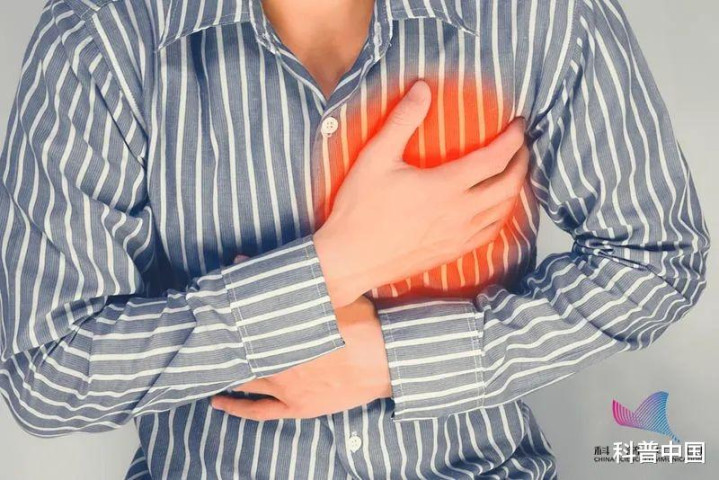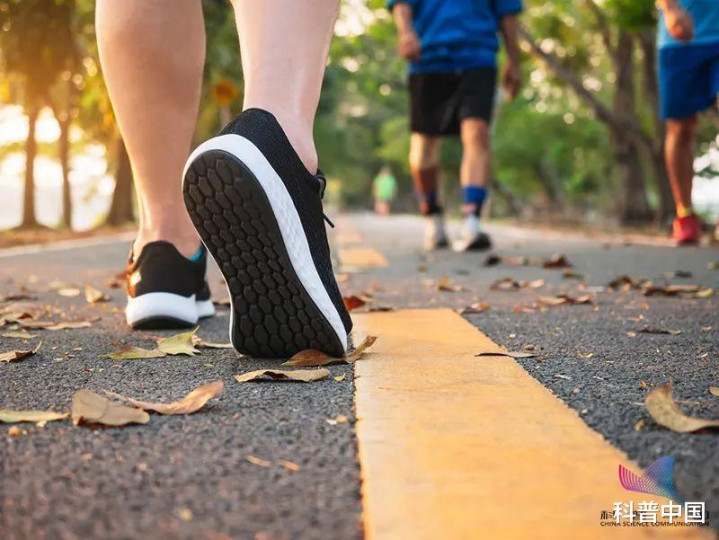Recently, the news of the sudden death of a 28-year-old employee of a company has attracted widespread attention.

Click to load picture
Weibo screenshot
The topic of sudden death has appeared in front of everyone again. I believe that everyone is not unfamiliar with it. It seems to be far away from us, but in fact it is impossible to prevent. In the face of more and more news about the sudden death of young people, why did the life that should be full of vigor suddenly disappear? Next, let’s talk about this terrible “killer”.
1. What is sudden death?
According to the definition of the World Health Organization, sudden death refers to the sudden death of a normally healthy or seemingly healthy patient due to a natural disease in an unexpectedly short period of time. The short time here generally refers to within one hour after the acute onset, with a maximum of no more than 6 hours.
2. What are the classifications of sudden death?
According to different etiologies, sudden death is clinically divided into sudden cardiac death and non-cardiac sudden death, and central sudden death accounts for about 80%.

Click to load picture
Sudden cardiac death is also known as sudden cardiac death , refers to natural death from cardiac causes, characterized by loss of consciousness, occurring within 1 hour of the onset of acute symptoms. Sudden death caused by coronary heart disease and its complications is the most common in patients with organic heart disease. In addition, various types of cardiomyopathy, fulminant myocarditis, long QT syndrome, Brugada syndrome, etc. are also the causes of sudden cardiac death.
Non-sudden cardiac death is the sudden death of a patient from a disease other than the heart. Common clinical diseases include aortic dissection, pulmonary embolism, acute cerebrovascular disease, acute severe pancreatitis, and severe electrolyte imbalance.
3. Why is sudden death getting younger and younger?
Bad living habits
Diet habits: With the improvement of living standards, hot pot, barbecue, garbage Food has become the staple food. Excessive intake of high-oil, high-fat, and high-salt foods, coupled with habits such as smoking and drinking, may lead to the occurrence of coronary heart disease, diabetes, hypertension and other diseases, and then Increased risk of sudden death.
Sleep Habits: Sleep is closely related to cardiovascular health. Many young people have the habit of staying up late. Studies show that long-term sleep deprivation increases the risk of coronary heart disease, stroke and sudden death.

Click to load picture
Exercise habits: many young People rarely go out to exercise, and obesity also follows, which is also one of the important reasons for inducing various cardiovascular and cerebrovascular diseases. Sitting for a long time may also increase the risk of venous thrombosis in the lower extremities. If the thrombus falls off and causes pulmonary embolism, it can also lead to sudden death. In addition, strenuous exercise may also lead to sudden death in young people, most of which are related to cardiovascular diseases, such as hypertrophic cardiomyopathy and arrhythmogenic right ventricular cardiomyopathy.
Work and life pressure
Nowadays young people are under pressure from work and life, long-term mental stress, and sympathetic nerves are in a state of excitement for a long time. When the psychological and emotional changes are large, coronary stress response may occur.
4. What are the signs of the body before sudden death?
Recent frequent chest tightness

click Loading pictures
If the chest tightness after repeated activities has recently occurred, it can be relieved after a period of rest, which may be a typical symptom of coronary heart disease. At this time, the atherosclerotic plaques in the coronary arteries are still unstable and may rupture at any time, thereby forming blockages, causing acute myocardial infarction and sudden death.
Frequent heart palpitations
Heartbeats are usually a subjective feeling of increased heart rate, and the most common cause of irregular increased heart rate is tachyarrhythmias. Most arrhythmias do not lead to sudden death, but if ventricular arrhythmia occurs frequently, it may develop into ventricular fibrillation, which can lead to death within minutes if not rescued in time.
Persistent bradycardia
Persistent and symptomatic bradycardia may also be a cause of sudden death. Such as third-degree atrioventricular block, sick sinus syndrome, etc., all have potential risk of sudden death.
Unexplained syncope
Syncope is a disturbance of consciousness caused by transient cerebral insufficiency due to various reasons, is an important factor in sudden death Precursor. Common cardiogenic syncope include sinus node disease, atrioventricular block, and vagal hypertonia. Therefore, after unexplained syncope occurs, you should be vigilant and identify the cause as soon as possible.
Tired for no reason

Click to load picture
Exclude intense exercise, lack of Sleep or illness and other factors, if there is unexplained long-term fatigue, fatigue, accompanied by chest tightness, edema, etc., you should be alert to the possibility of cardiomyopathy or myocarditis. Viral myocarditis is more common in young people, usually 1-2 weeks after a cold , with symptoms such as fatigue, chest tightness, and fatigue, acute severe myocarditis can easily lead to acute heart failure or severe arrhythmia, and even sudden death.
Unexplained chest pain
< p>Coronary heart disease, aortic dissection, acute pulmonary embolism, etc. may cause chest pain, all of which may induce sudden death. If chest pain symptoms occur for unknown reasons, it is necessary to go to the hospital in time to clarify the cause of chest pain
Black eyes or limb numbness
Stroke is also an important cause of sudden death, especially in patients with hypertension, coronary heart disease or atrial fibrillation. Some There are only mild symptoms in the early stage of stroke, and the patient does not care. Once it progresses rapidly, it may lead to sudden death. Therefore, if you have symptoms of stroke such as black eyes, numbness of limbs, you should go to the hospital immediately.< /p>
Profuse sweating
Before the onset of some diseases, such as myocardial infarction, hypoglycemia, etc., certain parts of the body such as neck, back, scalp, palms or The soles of the feet will be profuse sweating. At this time, you should be vigilant and beware of sudden cardiac death.
5. How to prevent sudden death?
Rule of life and rest: Pay attention to the combination of work and rest, avoid staying up late and overwork.
Pay attention to a reasonable diet:Reduce the intake of high cholesterol foods, increase Eat green vegetables and fruits, avoid overeating, and actively quit smoking and drinking.
Rational physical exercise: People with cardiovascular and cerebrovascular diseases or high risk factors should avoid high-intensity exercise Physical exercise, some low-intensity exercises, such as hiking, Tai Chi, etc. For hypertrophic cardiomyopathy, especially hypertrophic cardiomyopathy with outflow tract obstruction, strenuous exercise should be avoided.

Click to load picture
Keep Optimistic attitude: maintain an optimistic and peaceful attitude, avoid the stimulation of various negative emotions, especially to prevent anger and excessive psychological pressure.
Regular follow-up physical examination: High-risk groups should have special physical examinations for cardiovascular and cerebrovascular diseases every year, daily monitoring of blood pressure and blood sugar, timely detection and treatment of cardiovascular and cerebrovascular problems, and strict control of disease development .
Take medicines with you: Patients with cardiovascular and cerebrovascular diseases should take medicines on time as prescribed by doctors. In addition, patients with coronary heart disease are best to carry nitroglycerin, Suxiao Jiuxin pills and other emergency medicines.
6. How to perform first aid for sudden death?
The golden rescue time for sudden death is generally 4-6 minutes after sudden death. If rescue cannot be obtained in time within 6 minutes, irreversible damage to brain cells will occur. If the sudden death occurs in the hospital, various rescue measures can be taken, but if it occurs outside the hospital, you should immediately call 120, and under the condition of confirming the safety of the surrounding environment, perform artificial chest compression or artificial CPR in time. If there is an automatic external defibrillator (AED) nearby, perform AED rescue while ensuring cardiopulmonary resuscitation.
Sudden death is difficult to predict in advance, with rapid progress and high mortality. Therefore, the main focus is on prevention, pay attention to avoid the triggering factors that lead to sudden death, and if you find any abnormality in your body, please seek medical attention in time.
Experts in this article:
Hu Houxiang, Chief Physician of Cardiology Department, Affiliated Hospital of North Sichuan Medical College, Professor, Doctor of Medicine, Master Supervisor
Wang Xiaobo, Affiliated to North Sichuan Medical College Hospital Science and Technology Department, Staff